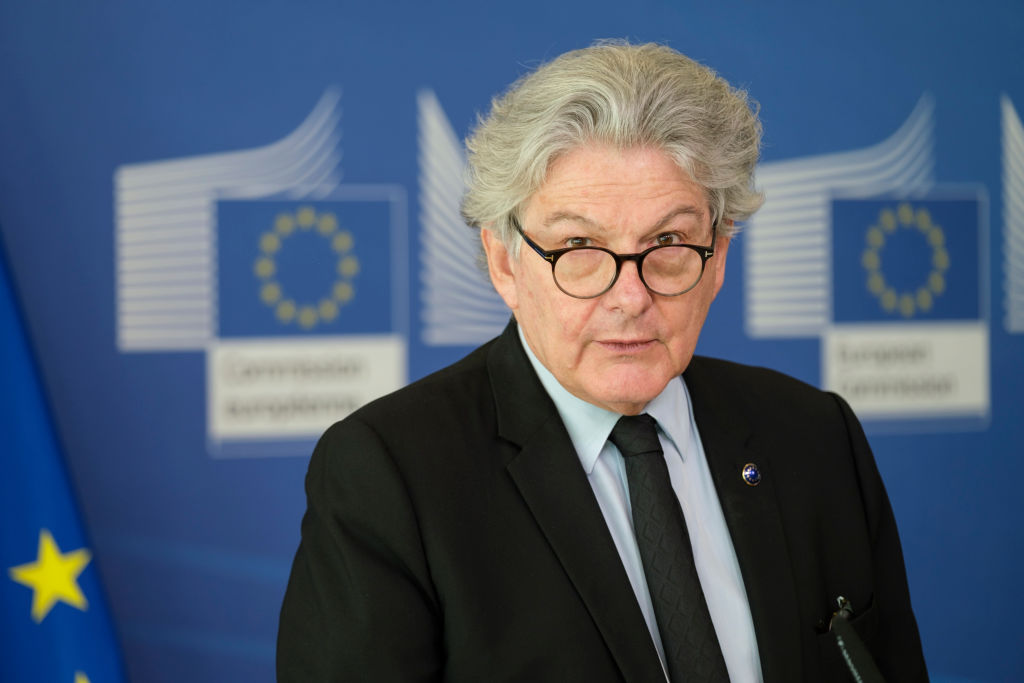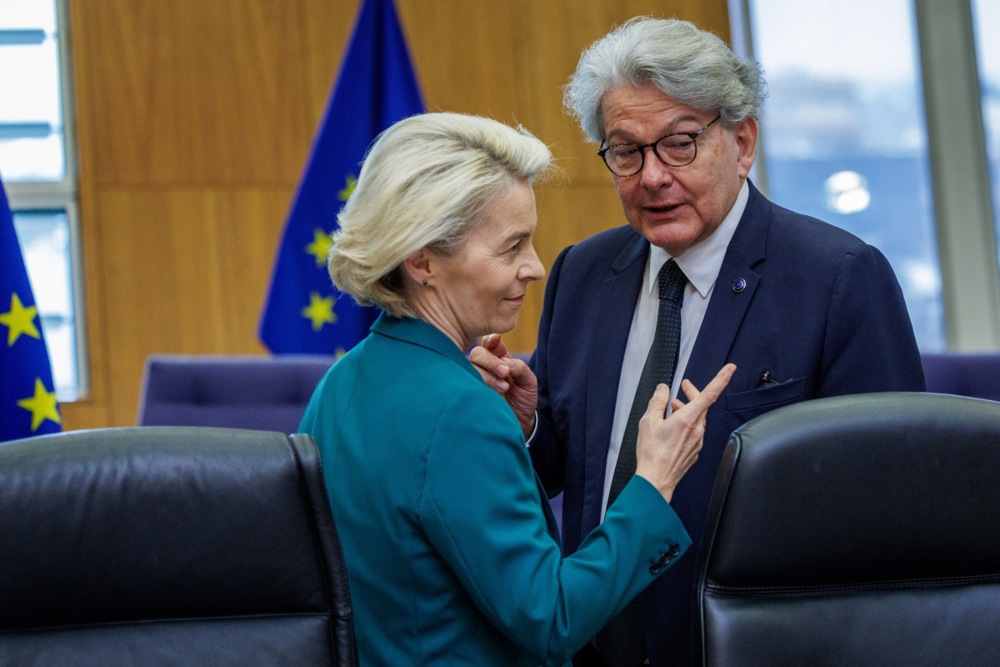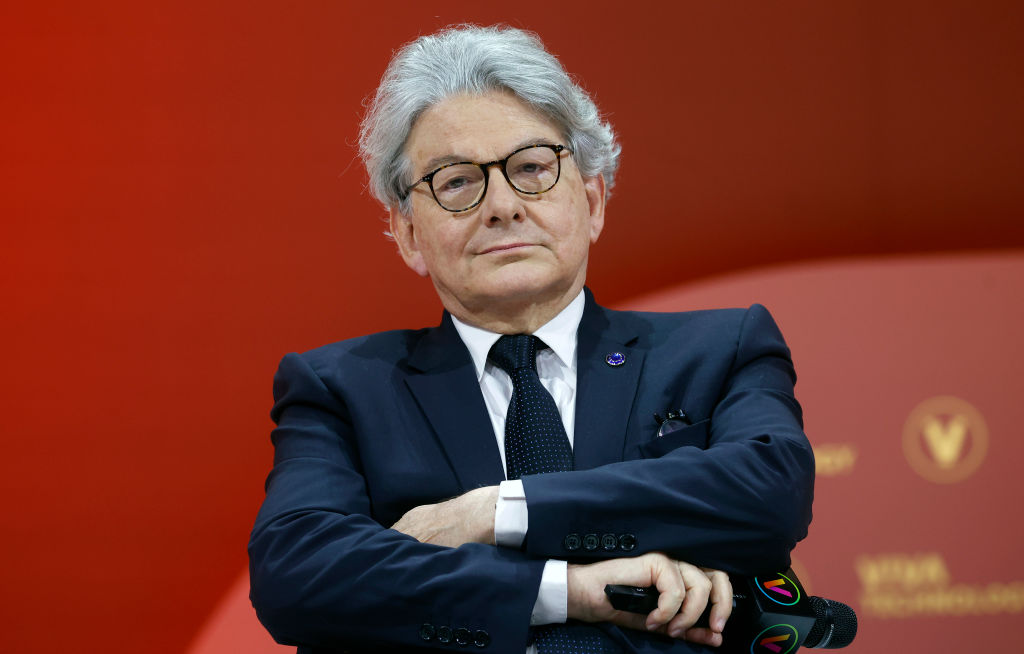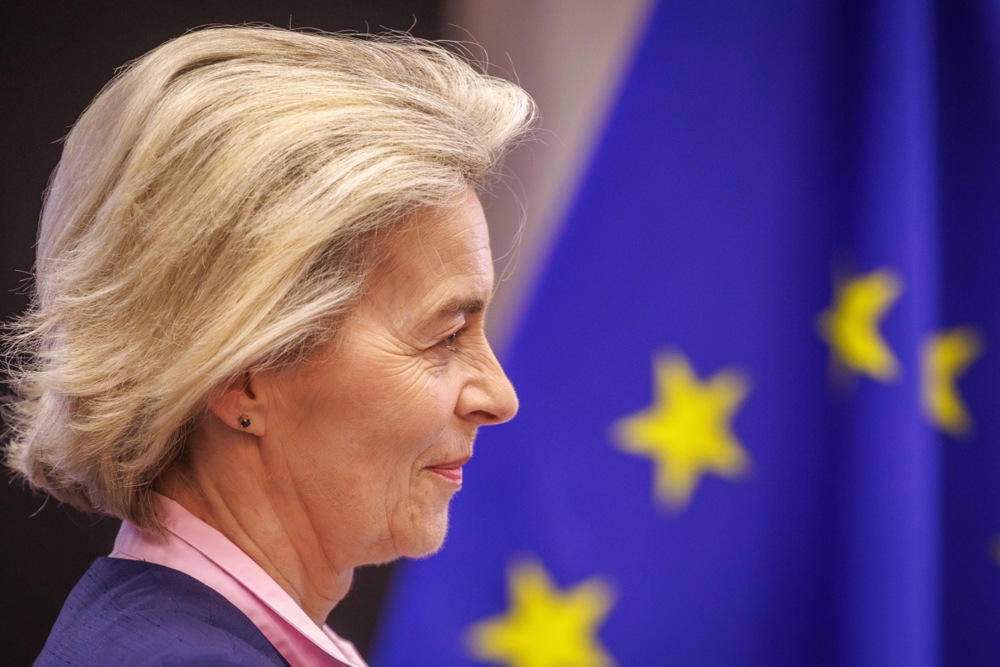European Commissioner for France Thierry Breton has announced his shock resignation on social media.
He publicly posted his letter addressed to European Commission President Ursula von der Leyen online, stating he would step down immediately.
Breton said he decided to make the move because “a few days ago, in the very final stretch of negotiations on the composition of the future College”, von der Leyen had asked France to withdraw his name from the list of candidates for the next EC.
She is said to have offered a political trade-off. According to Breton, “an allegedly more influential portfolio for France in the future College”.
He said von der Leyen’s move was inspired by “personal reasons that in no instance you have discussed directly with me”.
“Over the past five years, I have relentlessly striven to uphold and advance the common European good, above national and party interests,” Breton said, adding: “It has been an honour.
“However, in light of these latest developments — further testimony to questionable governance — I have to conclude that I can no longer exercise my duties in the College.”
I would like to express my deepest gratitude to my colleagues in the College, Commission services, MEPs, Member States, and my team.
Together, we have worked tirelessly to advance an ambitious EU agenda.
It has been an honour & privilege to serve the common European interest?? pic.twitter.com/wQ4eeHUnYu
— Thierry Breton (@ThierryBreton) September 16, 2024
At the end of July, French President Emmanuel Macron nominated Breton, who was Commissioner for Internal Market, for a second term in Brussels.
Nicknamed “digital enforcer”, among Breton’s most noticeable achievements were two important pieces of legislation: the Digital Services Act (DSA) and the Digital Markets Act (DMA).
His new portfolio was expected to have been different, with the politician rumoured to want a “heavyweight” economic role or to expand his current duties. A new role of Defence Commissioner was also seen as an option.
His backing in France became murky as Macron made the decision to nominate him as the country’s Commissioner just after having lost the parliamentary national elections, losing his majority. Other parties objected to the choice.
A bigger obstacle, as indicated in his own resignation letter, was the sour relationship he had with von der Leyen herself.
Their turbulent collaboration was marked by hostile incidents.
When Brussels tried to appoint US anti-trust expert Fiona Scott Morton as the European Union’s top competition economist, it was Breton who led the French charge against her, torpedoing any chances of Scott Morton getting the job.
In March, he publicly questioned support for von der Leyen from her own party, which led to rumours of him eyeing the job of EC President for himself.
Breton’s plans for producing ammunition were criticised and under him the EU pledges for increased production to support Ukraine were vastly overstated, an investigative report claimed. He had promised that the bloc would be able to churn out at least 1.3 million rounds of ammunition by the end of this year. In reality, that rate has so far been much lower.
An industry insider described his estimates as “nonsense” and added that the capacity for 2024 would be less than half a million rounds. “Possibly 400,000, maybe even a little less.”
Under Breton’s leadership, the EU fell short on the digital front, being outcompeted by China and the US on all forms of technology, ranging from AI to cybersecurity and quantum computing. The EU created regulation that posed compliance challenges but offered no help for the tech industry.
As “digital enforcer”, he was widely seen as too keen to censor free speech, undermining the European policies.
Among notable incidents was a letter Breton sent out to X-owner Elon Musk when the US tech heavyweight wanted to interview US presidential candidate Donald Trump.
In that, Breton said there was “a risk of amplification of potentially harmful content in the EU”, and warned Musk that he must enforce EU-backed censorship rules during his then-forthcoming interview with Trump or run the risk of being sanctioned by Brussels.
This garnered worldwide disapproval and was regarded as many as an attack on free speech.
Breton said he was misinterpreted and insisted that the EU was pro-freedom of speech. In another letter to the US Congress, he said his threats against Musk were merely a “reminder” to make sure illegal content and so-called “disinformation” was controlled and culled on X during the interview with Trump.
Musk tweeted an image with the text: “Take a big step back and literally f**k your own face,” in response to Breton’s move.
The EC was quick to distance itself from this PR disaster and stressed that it did not had anything to do with the letter.
“The timing and the wording of the letter were neither co-ordinated nor agreed with [von der Leyen] nor with the college of the Commission,” Ariana Podesta, the EC’s acting chief spokesperson during the summer break, told reporters at a press briefing on August 13.
Later, US Congressman Jim Jordan stated Breton had sent an “inaccurate” letter to his committee in an attempt to deny he was threatening to force Musk into censoring content.
Jordan wrote back to Breton: “The only logical inference from your actions is that your letter was intended as a threat to Musk that the EU would, as you warned, ‘make full use of [its] toolbox’ if he facilitated political speech with which you disagreed.”
Brussels Signal reached out to spokespeople from the EC but as of writing had not received a reply.
A spokesman from Breton confirmed the resignation letter, but could not give further details at this stage.
It's always sad to see someone lose their job but this is for the best.
Breton turned regulation making into a personal soap opera, targeting @elonmusk unfairly.
His legacy will not be positive – Europe has no big tech left. https://t.co/5Nv8KmD471
— Connor Allen (@ConnorAllenEU) September 16, 2024





